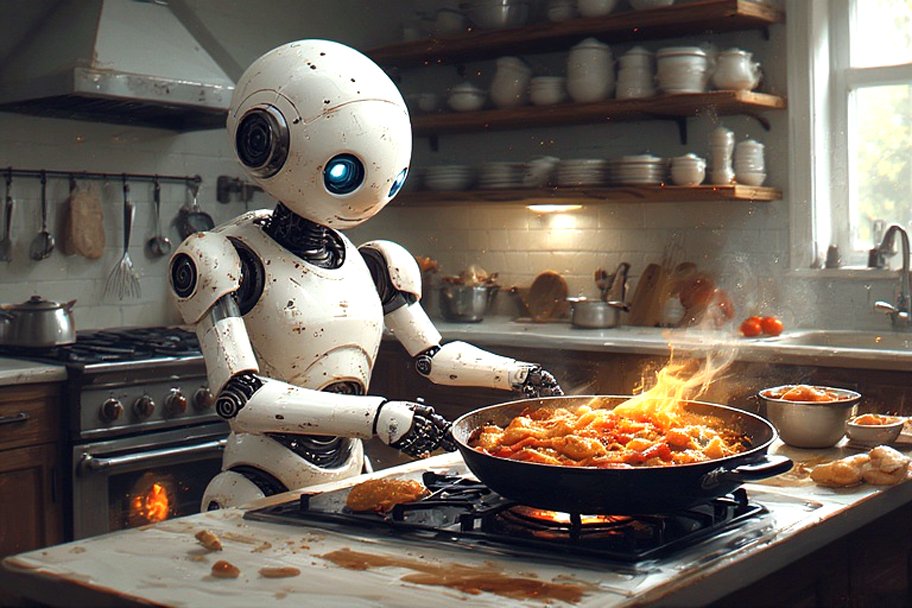As I wrote before when I first broached the topic of artificial intelligence (AI) and its effect on the job front, my profession may already be doomed. AI, as it currently exists, can write better — and much more quickly — than I can with my decades of professional experience.
In 30 seconds, AI can compose a well-researched article on just about any topic of my choice. Some of these topics would take me hours if not days of research to produce.
(So far, I haven’t found that AI can come up with a cute phrase or analogy or invoke irony, but it’ll probably learn in no time flat how to be as show-offy as we humans can be.)
PLAY THE AUDIO BY PUSHING BUTTON BELOW
Add that miracle of writing to the myriad other functions in AI’s arsenal, and you have just the tip of the iceberg, folks. Drastic change may be in order, according to the Nobel Prize-winning godfather of AI.
Of course, AI doesn’t just mean robots that are smarter than humans. My fanciful illustration of a robot serving dinner is more graphic than showing a bank of supercomputers, the point being that AI in its many manifestations may well replace us.
And at the same time outsmart us, according to Geoffrey Hinton, the “godfather of AI” I referred to.
In an interview released in advance of the upcoming film “Making God,” Hinton sounds the alarm that AI is going to be smarter than humans (It already is in my chosen line of work).
In his interview, he observes that people “always think, ‘Well, how are we going to use this thing?’ They don’t think, ‘Well, how’s it going to use us?'”
One thing we don’t have to worry about, Hinton confides, is AI literally consuming us for sustenance “because it’ll be made of silicon.”
He says: “The risk I’ve been warning about the most … is the risk that we’ll develop an AI that’s much smarter than us, and it will take over. It won’t need us anymore.”
Hinton puts the chance of AI replacing us at 10 to 20 percent. He says the cure to a dystopian future taken over by AI is to teach AI to care for humans as parents do for children. AI, he says, in all its manifestations, should be designed with “maternal instincts.”
My question: In their rush to develop AI, will scientists even bother to add Mom to the mix?
)
[PICTURED: A robot prepares a family dinner, but doesn’t eat because they don’t need the stuff we consume to keep on keepin’ on. Robots wouldn’t need eating mechanisms anyway, just energy sources.







